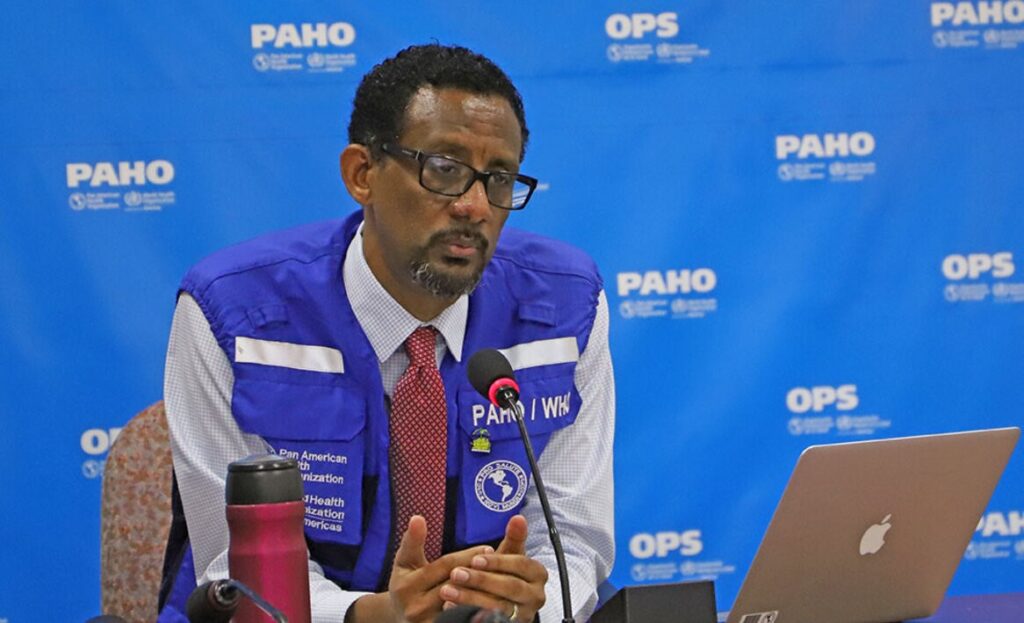BRIDGETOWN — The Pan American Health Organization (PAHO) said 32 countries and territories in the Americas have reported the presence of at least one of the three “variants of concern” of the virus that causes COVID-19, SARS-CoV-2, according to a new Epidemiological Update.
These variants may increase transmissibility of the virus, increase its virulence, or decrease the effectiveness of public health and social measures or diagnostics, vaccines, and therapeutics, although much remains to be learned about them.
Current measures to reduce transmission – including frequent hand washing, wearing a mask, physical distancing, good ventilation and avoiding crowded places or closed settings – continue to work against new variants by reducing the amount of viral transmission and therefore also reducing opportunities for the virus to mutate.
The countries and territories that reported one or more of these variants include Argentina, Aruba, Barbados, Belize, Brazil, Bonaire, Canada, Cayman Islands, Chile, Colombia, Costa Rica, Cuba, Curacao, Dominican Republic, Ecuador, French Guiana, Guadeloupe, Jamaica, Martinique, Mexico, Panama, Peru, Puerto Rico, Saint Barthelemy, Saint Martin, Saint Lucia, Sint Maarten, Trinidad and Tobago, Turks and Caicos, United States of America, Uruguay, and Venezuela.
Since the initial identification of SARS-CoV-2, more than 845,000 complete genomic sequences have been shared globally through publicly accessible databases. “The capacity to monitor the data in near real time has a direct impact on the public health response to the COVID-19 pandemic, allowing to identify changes in epidemiological patterns, in virulence, or in the decrease in therapeutic efficacy, among other changes,” the PAHO update noted.
To date, three variants of SARS-CoV-2, first identified in the United Kingdom, South Africa, and Brazil and known as B.1.1.7, B.1.351, and B.1.1.28.1, have been classified by the World Health Organization (WHO) as variants of concern (VOC), in consultation with the WHO Working Group on the Evolution of SARS-CoV-2. Variants in another category, variants of interest, covering three additional types, have been reported in Brazil, the United States, and six other countries and territories.
PAHO’s update said, “Given the significant resource requirements needed to sequence all samples in the region to identify variants, PAHO continues to work closely with laboratories in the countries of the Americas to help identify samples which should be prioritized for genomic sequencing.”
To date, 21 countries are participating in the COVID-19 Genomic Surveillance Network, with reference sequencing laboratories in Brazil and Chile. PAHO is working together with the countries of the region to expand and strengthen the regional network, as this mechanism will be critical to tracking the spread or appearance of new variants of concern. PAHO is also supporting epidemiological studies in Brazil to understand the patterns of transmission, reinfection, and the severity of cases from the different circulating variants.

